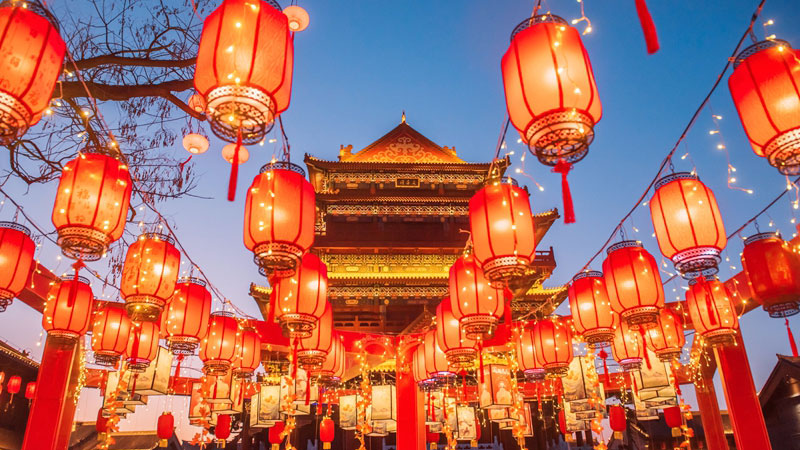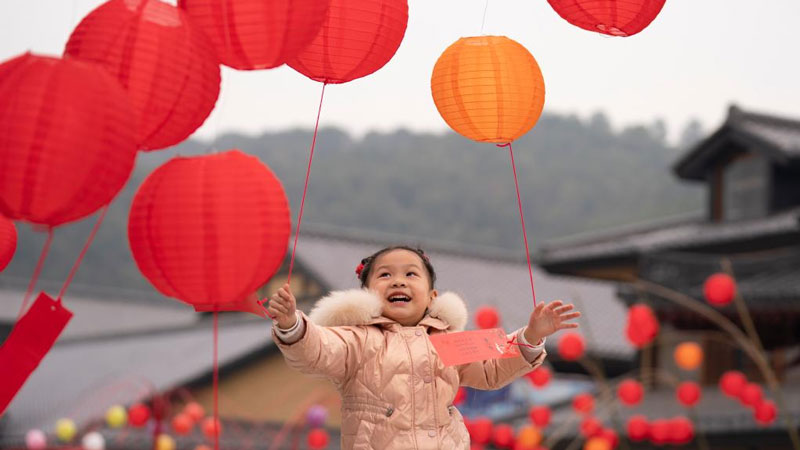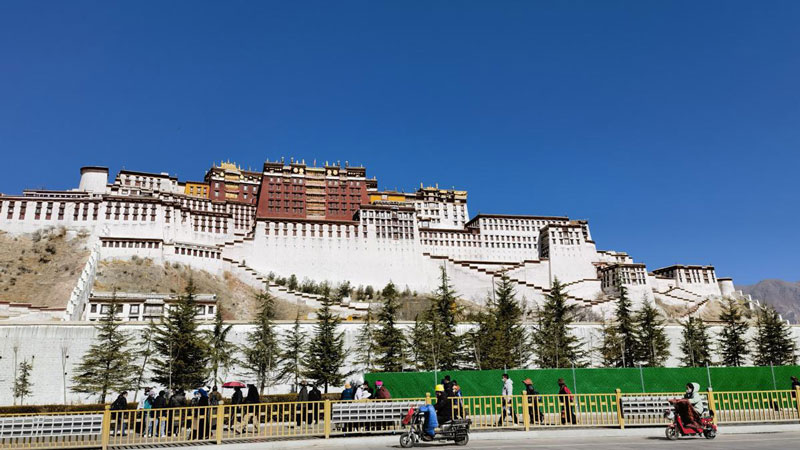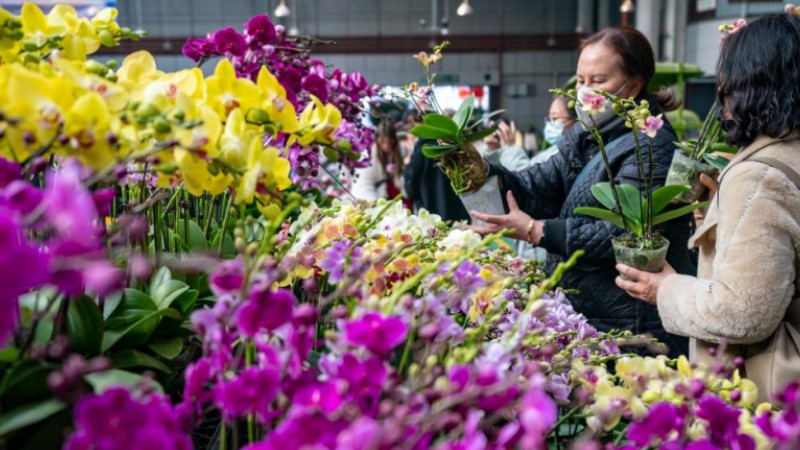Beijing Winter Olympics boosts China's winter sports
BEIJING, Feb. 3 (Xinhua) -- Du Mingxuan has spent almost every day of his winter break practicing snowboard tricks at a ski resort in Jilin City in northeast China's Jilin Province.
After five years of hard training, the 10-year-old snowboarder is already a veteran in the field. He is now busy working on his front flips and aims to master the frontside 720, an aerial maneuver in which the snowboarder rotates 720 degrees.
Inspired by the 2022 Beijing Winter Olympics, Du has developed a stronger passion for snowboarding and achieved excellent results in competitions.
"Su Yiming is my idol. His performance at the Beijing Winter Olympics was amazing. I want to practice as hard as he does and move on to higher-difficulty tricks," said Du.
Su is a Chinese snowboarder who won gold in the Beijing 2022 men's big-air snowboard and silver in the men's snowboard slopestyle.
Driven by the Beijing Winter Olympics, ice-and-snow activities have gained popularity among Chinese people. During the Spring Festival holiday, which ran from Jan. 21 to 27 this year, winter sports and leisure programs became preferred choices across China.
"Many of my students are children. I can feel the growing popularity of winter sports among the people, especially after the 2022 Beijing Winter Olympics," said Zhang Zida, a part-time ski instructor at Aoqiwan Ski Resort in China's northernmost Heilongjiang Province.
"The Beijing Winter Olympics ignited the public enthusiasm for participating in winter sports, and more and more people choose to have a skiing holiday to celebrate the new year," said Zhao Lanju, general manager of Vanke Songhua Lake Resort in Jilin City, adding that the resort received about 45,000 visitors during the Spring Festival holiday, up 13 percent year on year.
In northwest China's Xinjiang Uygur Autonomous Region, top-rated skiing resorts received around 121,800 people during the festival, up nearly 5 percent from the same period last year, while tourism revenue reached 19.96 million yuan (about 2.96 million U.S. dollars), up 80.16 percent from last year, latest statistics showed.
Various competition venues, as the legacy of the Beijing Winter Olympics, also offered easy access to ice-and-snow facilities for the general public.
In early January, an ice-and-snow carnival opened to the public at the Shougang Big Air in Beijing, where freestyle skiing and big-air snowboarding events took place during the Beijing Winter Olympics. Visitors can enjoy various fun and creative ice-and-snow activities, such as balance bike riding in the snowfield.
In north China's Hebei Province, one of the host places of the Beijing Winter Olympics, the authorities proposed strengthening the use of Winter Olympics venues, accelerating the improvement of infrastructure and supporting services.
As one of the Beijing Winter Olympic Games venues, Hebei's Genting Snow Park opened the U-shaped field, Moguls, and five other tracks to the public, to meet the desire of snow enthusiasts, while other local ski resorts have launched multiple activities to attract tourists.
A report on China's ice-and-snow tourism development predicts the number of ice-and-snow leisure travelers in China will likely exceed 300 million in the 2022-2023 ice-and-snow season. The number is expected to reach 520 million in three years, and the related tourism revenue will reach 720 billion yuan.
The Beijing Winter Olympics further stimulated people's passion for participating in ice-and-snow sports. With favorable policies, more beginners will turn into winter sports enthusiasts, promoting the development of this sport and related business activities, said Sun Zhe, associate professor at the economics school of Jilin University.
Photos
Related Stories
Copyright © 2023 People's Daily Online. All Rights Reserved.









